The popularity of hydroponic herb gardening has increased due to its efficiency and convenience. Particularly for indoor living and sustainability, which has resulted in a rise in indoor gardening and made hydroponics an attractive choice for growing fresh herbs at home. This blog will provide a guide for starting your own hydroponic herb garden. Let’s start with Guide of Plants.
Table of Contents
Know About:
- Herbal Gardening for Beginners, Unleashing Nature’s Healing Power
- 10 Most Powerful Herbal Plant
- Chervil or Chervil Herb
Getting Started with Hydroponic Herb Gardening
Developing a hydroponic herb garden is an exciting and accessible option for people who want to grow fresh herbs in their homes. This innovative method eliminates the need for soil, making it perfect for small spaces. To get started, you will need to understand the basics of hydroponics, choose the herbs you want to grow, set up your system, transplant your chosen herbs, and ensure they receive proper nutrients and lighting.
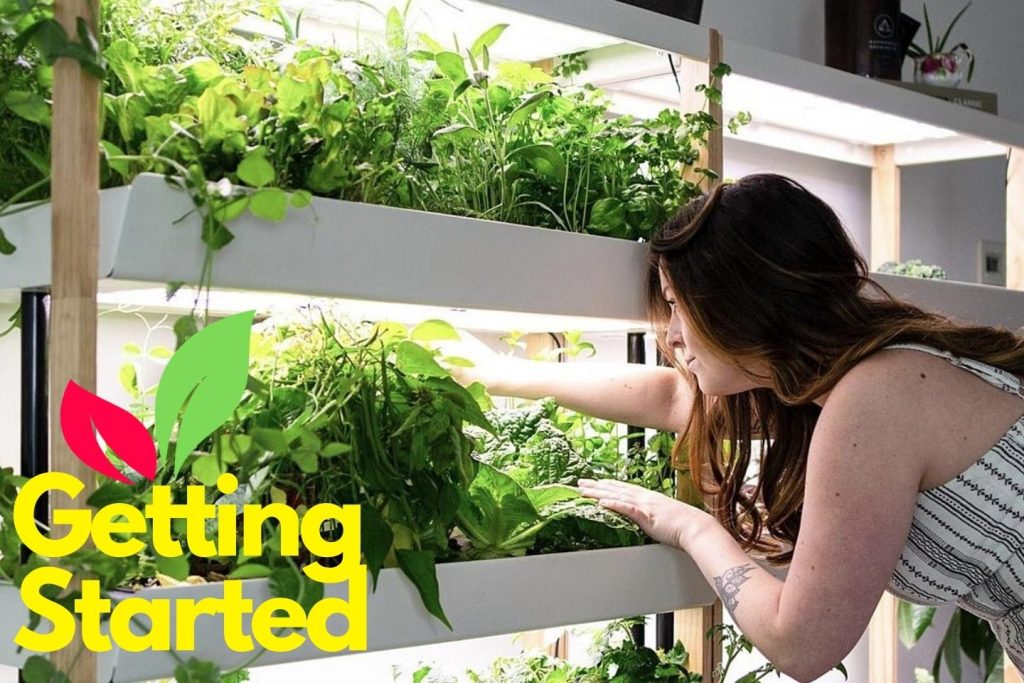
Here are some tips on how to get started:
- Understand hydroponics. Hydroponics is a soilless gardening technique that involves growing plants in nutrient-rich water solutions. By bypassing traditional soil, hydroponic systems allow herbs to access essential nutrients more efficiently, resulting in faster growth rates and higher yields.
- Choose the right herbs for your garden. There are many different herbs that can be grown hydroponically, so it’s important to choose ones that are well-suited to your climate and growing conditions. Some popular choices include basil, mint, cilantro, rosemary, and thyme.
- Select the ideal location and setup. Your hydroponic herb garden should be located in a spot that receives plenty of sunlight or artificial light. You’ll also need to make sure that the area is well-ventilated and has a consistent temperature and humidity.
- Set up your hydroponic system. There are many different types of hydroponic systems available, so you’ll need to choose one that is appropriate for your needs and budget. Once you’ve chosen a system, you’ll need to set it up according to the manufacturer’s instructions.
- Create the perfect nutrient solution. The nutrient solution is essential for the health and growth of your herbs. It should contain the necessary macronutrients (nitrogen, phosphorus, potassium) and micronutrients (iron, zinc, calcium) for optimal growth. You can either purchase a commercial nutrient solution or make your own.
- Transplant your herbs. Once your hydroponic system is set up and the nutrient solution is ready, you can transplant your chosen herbs. Be sure to follow the instructions that came with your system.
- Provide proper care and maintenance. Your hydroponic herb garden will require regular care and maintenance. This includes monitoring the nutrient solution, pH levels, and temperature. You’ll also need to fertilize your herbs regularly and prune them as needed.
With a little care and attention, your hydroponic herb garden will thrive and provide you with fresh herbs all year round.
Know About: The Joy of Fruit Plant Gardening, Growing Your Own Fresh Bounty
Selecting and Preparing Herbs
Successful growth in hydroponic gardening requires careful selection and preparation of herbs. Choose herbs that thrive in hydroponic systems based on personal preferences, space, and climate. Use good quality seeds or seedlings free from diseases. Gently transplant them into the growing medium and provide adequate root support. With proper care, the herbs will adapt to their new environment and provide bountiful harvests.
Best Herbs for Hydroponic Gardening
Certain herbs thrive exceptionally well in hydroponic systems, offering a bountiful harvest and unmatched flavors. For example, basil is a favorite among hydroponic gardeners due to its rapid growth and rich taste. Cilantro and mint are also popular choices for their ability to flourish in water-based environments.
Starting from Seeds or Seedlings?
When starting your hydroponic herb garden, you have the option, to begin with seeds or seedlings. While growing from seeds allows you to witness the entire growth process, it requires more patience and effort. Seedlings, on the other hand, provide a head start and are recommended for beginners or those seeking quicker results.
Properly Transplanting Herbs into the System
Transplanting your selected herbs into the hydroponic system requires gentle care to avoid damaging the delicate roots. Gently remove the plants from their original containers and place them into the growing medium. Ensure that the roots are adequately covered and supported, promoting seamless adaptation to their new environment.
Know About: Beginner’s Guide to Flower Gardening: Tips for Choosing, Planting, and Maintaining a Beautiful Garden
Hydroponic Herb Garden Maintenance
By following these tips, you can ensure that your hydroponic herb garden is successful and produces healthy, delicious herbs.
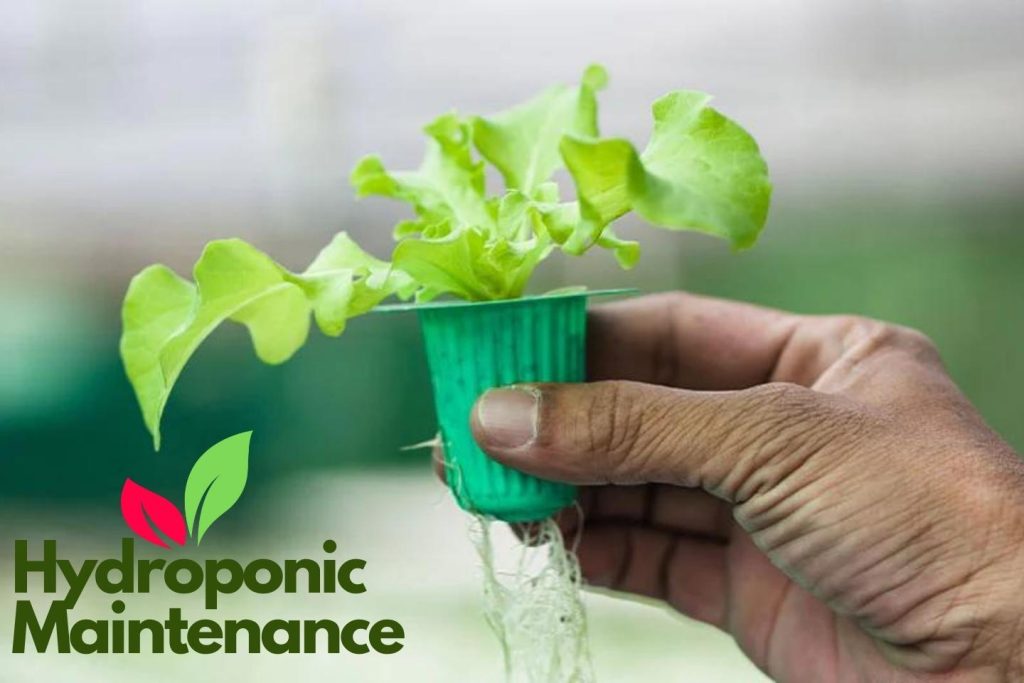
- Monitoring and Adjusting Nutrient Levels
The correct nutrient levels are essential for the health of hydroponic herbs. It is important to regularly monitor the pH levels and nutrient concentration of the solution using appropriate testing tools. The nutrient solution should be adjusted as needed to ensure that the herbs receive the ideal blend of essential elements.
- pH Balance and Its Importance
The pH level of the nutrient solution plays a critical role in nutrient absorption and plant health. Most herbs prefer a pH range between 5.5 and 6.5. Deviations from this range can lead to nutrient deficiencies or toxicities, hindering the plants’ growth and overall performance.
To maintain the proper pH level, you can use a pH test kit to measure the current pH level of the solution. If the pH level is outside of the ideal range, you can adjust it by adding a pH up or pH down solution.
- Maintaining Proper Lighting and Temperature
Proper lighting and temperature are essential for the success of your hydroponic herb garden. If relying on artificial lighting, ensure that your herbs receive the recommended daily light duration and intensity. Additionally, maintain an appropriate temperature range, allowing the herbs to thrive in their controlled indoor environment.
The ideal light duration for most herbs is 12-16 hours per day. The ideal temperature range for most herbs is 65-75 degrees Fahrenheit.
Know About: Organic Vegetable Gardening 101, From Seed to Plate
Troubleshooting Common Issues
- Nutrient Deficiencies
Your hydroponic herb garden may have nutritional deficits despite your best efforts. Recognize common symptoms like yellowing leaves or stunted development and treat the nutrient imbalance. Most problems involve nitrogen, phosphorus, and potassium.
- Pest and disease control
Hydroponic systems are safer than soil farming, but you must be attentive. Check your herbs for bugs and diseases. Protect your garden with natural predators or organic pest management.
- Root Rot and Other Common Issues
Hydroponic systems are vulnerable to root rot from overwatering or insufficient oxygenation. Drainage and oxygen to the root zone prevent root rot. System maintenance can handle algae growth and temperature changes.
Harvesting and Pruning Herbs
- Harvesting Herbs
Harvesting hydroponic herbs at the proper time preserves flavor and nutrients. Before pruning leaves or stems, let plants mature. Morning harvesting boosts herb flavor and aroma.
- Growth-Promoting Pruning
Regular pruning promotes strong growth and prevents leggy herbs. Reducing foliage improves airflow and light penetration, making plants healthier and more productive.
- Maximising Yield and Flavour
To maximize hydroponic herb productivity and flavor, provide enough light, nutrients, and room. Harvest ripe leaves to promote growth. Find the right herbs for your cooking by experimenting.
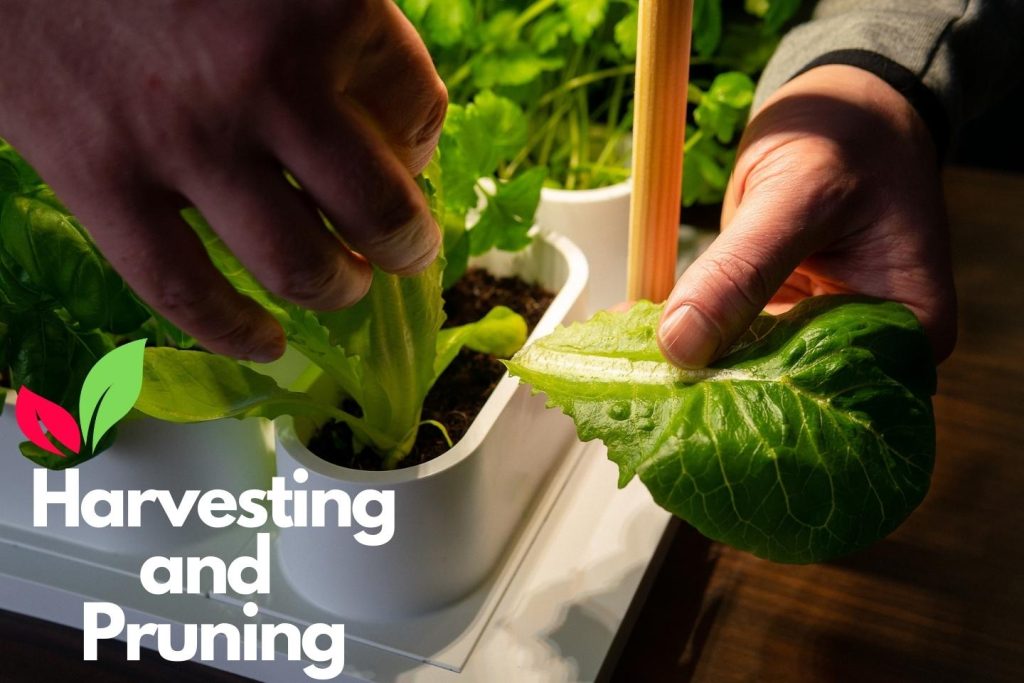
Innovative Hydroponic Systems
- Deep Water Culture Explained: Deep Water Culture hydroponics is simple and popular. In DWC, air pumps aerate the plant’s roots in a nutrient solution. Oxygen-rich soil promotes root growth, making herbs grow better.
- NFT Benefits: Another popular hydroponic method, the fertilizer Film Technique, flows fertilizer solution through a shallow sloping trough. Roots dangle into the nutrient layer to absorb nutrients and water. Hydroponic gardening with NFT systems is eco-friendly since they conserve water and nutrients.
- Flood-Drain Systems: Ebb and Flow, often known as Flood and Drain, is a popular hydroponic method. The grow bed is frequently flooded with nutritional solutions, nourishing the plants’ roots. The solution drains back into the reservoir after a while, allowing aeration. This cycle of flooding and draining gives plants nourishment without waterlogging roots.
Vertical Hydroponic Herb Garden
Vertical hydroponic systems transform urban gardening. Stacking planters vertically maximizes your home garden’s footprint by growing more herbs. Vertical gardening makes any wall a living, green tapestry. Vertical hydroponic gardens give all plant layers more light, promoting consistent growth. This design reduces pests and diseases and simplifies care and harvesting. Vertical hydroponic herb gardens are fun and inexpensive to make. DIY vertical garden design choices include reusing household objects and building a wooden frame.
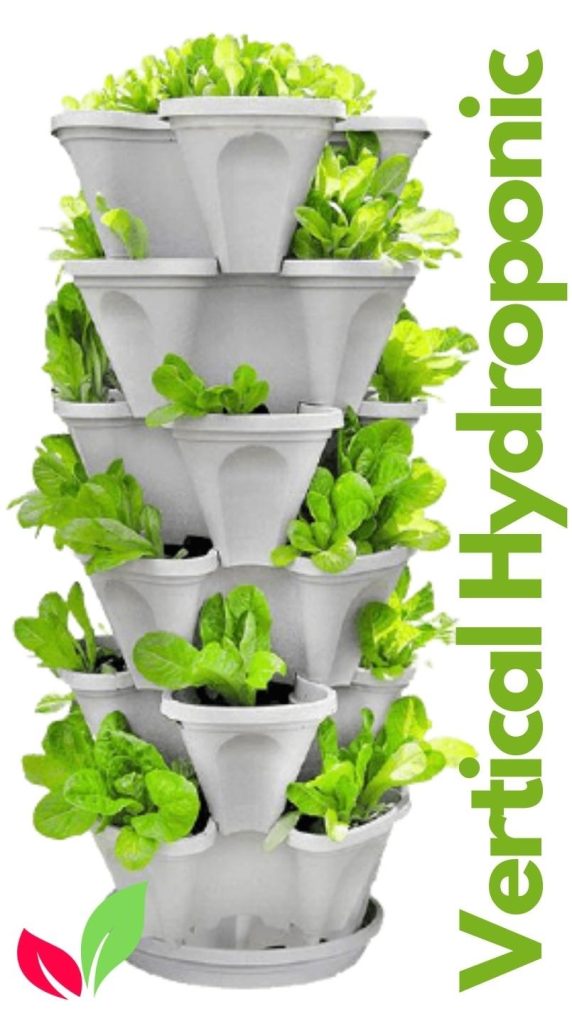
Smart Technology and Hydroponics
Hydroponic IoT Agriculture has been transformed by IoT. IoT solutions let gardeners remotely monitor and manage hydroponic systems. Smart sensors analyze temperature, humidity, and nutrient levels in real-time for optimal plant health. Automated Systems By controlling nutrient distribution, lighting, and ventilation, hydroponic systems simplify gardening. Remote monitoring lets you operate your garden from a smartphone app and receive notifications for improvements. Smartphone Gardening Apps Numerous hydroponic smartphone apps offer plant care reminders, nutrient solution calculators, and troubleshooting tips. These easy-to-use applications help novice and expert gardeners succeed.
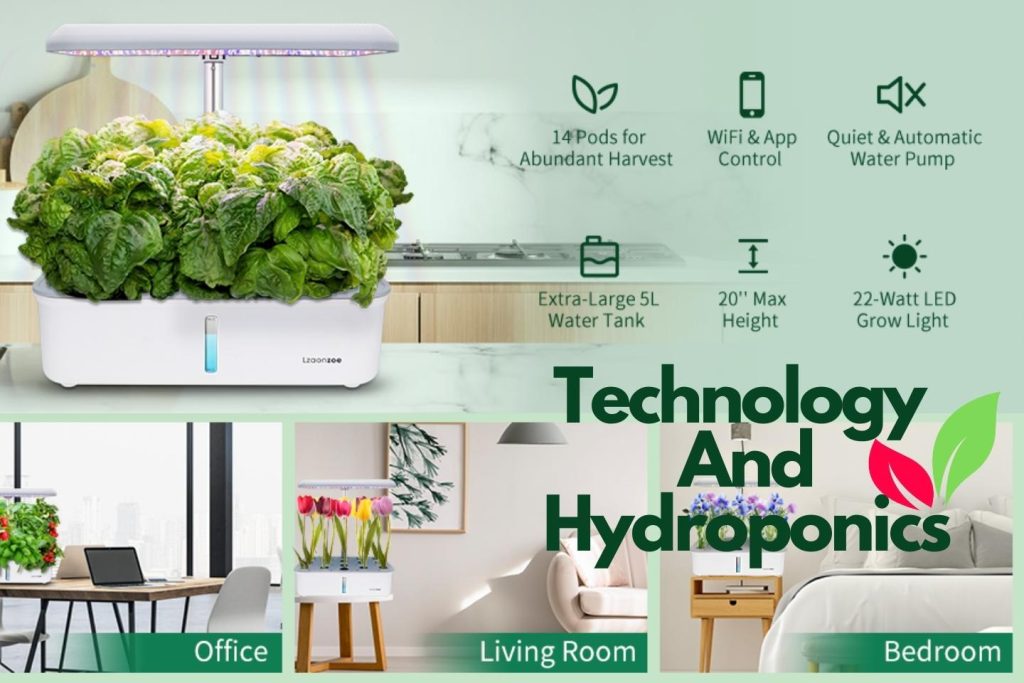
Sustainable Gardening Practices
Water scarcity worldwide necessitates water-saving practices in all areas of life, including gardening. Recirculating hydroponic systems reuse fertilizer solutions, conserving water. Drip irrigation can further cut water use. Hydroponic herb cultivation increases sustainability by eliminating soil and water use. Hydroponic growing also produces less trash. Composting plant clippings reduces environmental damage. Vermiculture, or worm composting, adds nutrients to hydroponic herb gardens. Worm castings, or “black gold,” improve soil and fertilizer solutions, helping plants develop.
Hydroponic Herb Garden in Small Spaces
- Ideal for Apartments and Limited Areas
Hydroponic herb gardening is ideal for urban dwellers with limited outdoor space. Whether you have a small balcony, windowsill, or kitchen countertop, you can set up a hydroponic system to grow fresh herbs right at home.
- Creating a Kitchen Countertop Garden
A kitchen countertop hydroponic herb garden brings the convenience of freshly harvested herbs directly to your culinary endeavors. Having herbs at arm’s reach not only elevates your dishes but also adds beauty to your cooking space.
- Wall-Mounted Hydroponic Setups
Wall-mounted hydroponic systems creatively transform vertical space into a lush green feature. Hanging gardens not only serve as a functional herb source but also add an eye-catching element to your home decor.
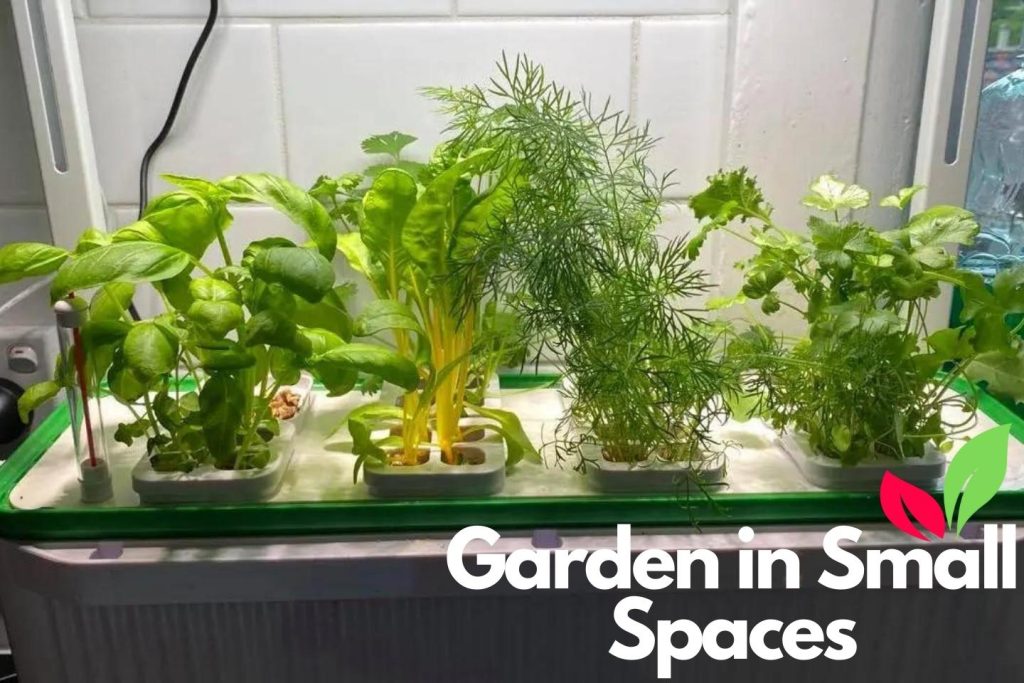
Hydroponics vs. Traditional Soil Gardening
- Comparing Methods
Both hydroponic and soil herb planting have pros and cons. Hydroponics grows faster, uses less water, and controls nutrients, whereas earth gardening is natural and may yield better flavors.
- Which Is More Effective?
Hydroponics is more productive than earth growing. Hydroponic systems maximize output since they grow faster and yield more.
- Sustainable Agriculture’s Future
Hydroponic herb planting could help solve food security and environmental issues. Hydroponics may help agriculture become more sustainable and reduce our ecological impact by producing more food with fewer resources.
Health Benefits of Homegrown Herbs
Homegrown herbs are incredibly nutritious and offer a wide range of health benefits. Packed with vital vitamins, minerals, and antioxidants, these foods provide a wide range of health benefits that contribute to your overall well-being. In addition to their culinary applications, herbs have long been acknowledged for their medicinal properties. Herbs have been highly valued for their healing potential, offering benefits such as soothing digestive issues and boosting the immune system.
Enhancing Well-Being through Indoor Gardening
Hydroponic farming improves mental wellness. Plants can alleviate anxiety, despair, and tension. Green places calm the mind, minimizing modern living stress. Even in cities, hydroponic herb gardens let you enjoy nature. Your hydroponic herb garden might become a peaceful retreat. To relax and rejuvenate, add water features, natural design, and soft lighting.
Teaching Kids about Hydroponics
Hydroponic gardening educates kids. Plant life cycles, nutrient cycles, and sustainable practices can help kids connect with nature. Hydroponics teaches students environmental awareness. Resource-efficient gardening makes kids more environmentally conscious. Family hydroponic herb planting is enjoyable. Create a tiny herb garden in repurposed containers or a customized vertical layout with kids.
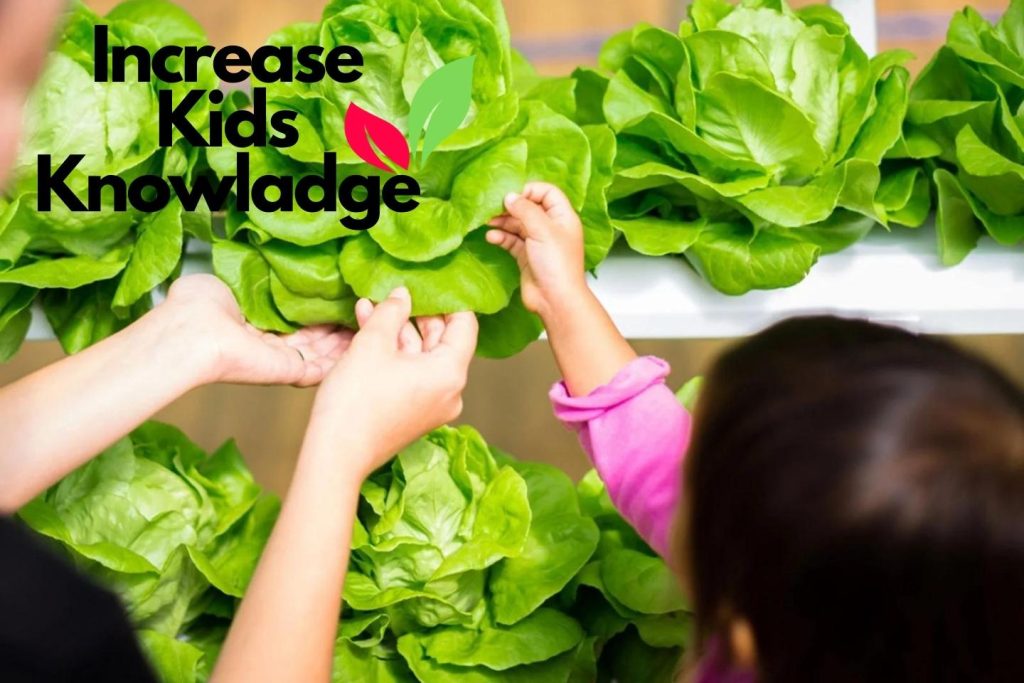
Community Hydroponic Gardens
Community hydroponic gardens allow neighbors to bond through their love of gardening. Shared spaces foster solidarity and environmental responsibility. Community hydroponic gardens revitalize urban neighborhoods and create green places that foster community. Residents feel pride and ownership as they tend the garden and eat fresh, produced produce.
Gardeners of all levels share information in community hydroponic gardens. Hydroponic gardening experts may teach newbies. Pooling equipment, seeds, and nutritional solutions make gardening accessible to everybody. Gardens are no longer outdoors. Hydroponic herb gardens can integrate into your interior decor, providing natural beauty. Planters, hanging systems, and innovative arrangements may make your home a green sanctuary.
Hydroponic gardening containers range from sleek and simple to quirky and imaginative. Make your herb garden a statement by choosing pots that match your home and style. Instagram users adore hydroponic herb gardens for their beauty. Many gardening lovers are inspired to develop Instagram-worthy herb gardens that showcase hydroponics’ beauty and adaptability.
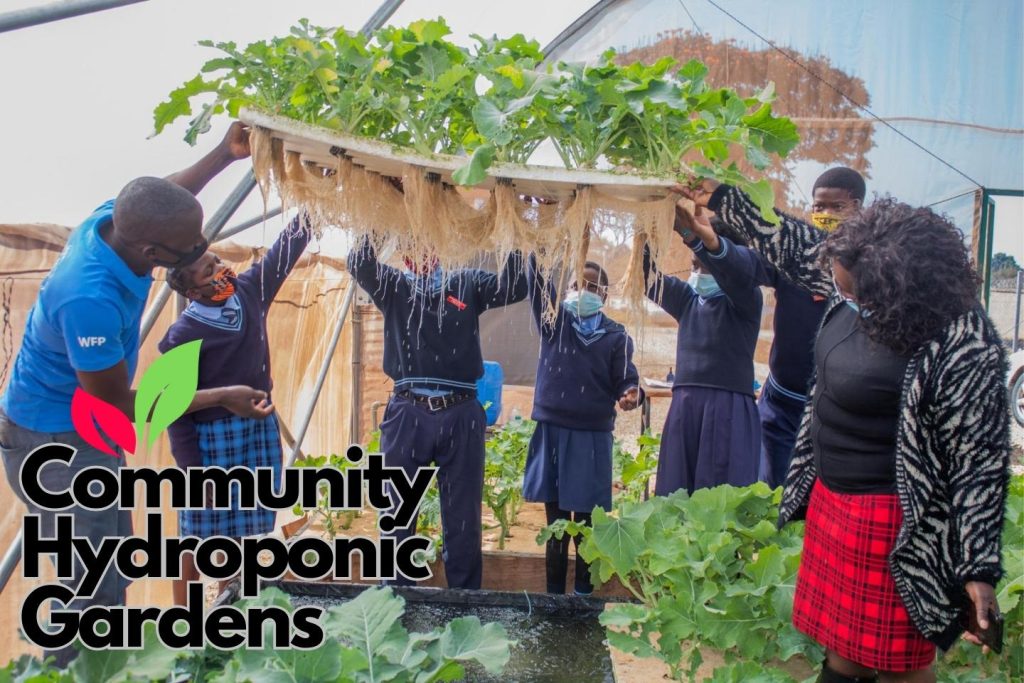
Dry and store hydroponically cultivated herbs for year-round use. To maintain flavor and aroma, hang fresh herb bundles in a cool, dry spot. Store dried herbs in sealed containers away from sunlight. Infuse oils, kinds of vinegar, and teas with homegrown herbs to maximize their potential. Herbal oils and bottles of vinegar give depth and tang to sauces and marinades. Herbal teas are relaxing and fragrant. Hydroponic herb gardening’s greatest reward is employing fresh herbs in your cooking. Homegrown herbs enhance meals, whether you’re adding basil to a spaghetti sauce or thyme to a dish.
Conclusion
The hydroponic herb garden is a sustainable, space-saving way to grow fresh herbs at home. Modern gardeners like its rapid growth and lower water use. Hydroponic herb planting offers health and environmental benefits as well as homegrown products. Hydroponics has great potential for home gardening, from stress reduction to sustainable agriculture. Begin Your Sustainable, Flavorful Lifestyle! Hydroponic herb planting is fun and rewarding for all gardeners. Try alternative systems, herbs, and indoor gardening. Hydroponics lets you grow a lush herb garden that nourishes your body and soul, leading to a healthy and savory lifestyle.

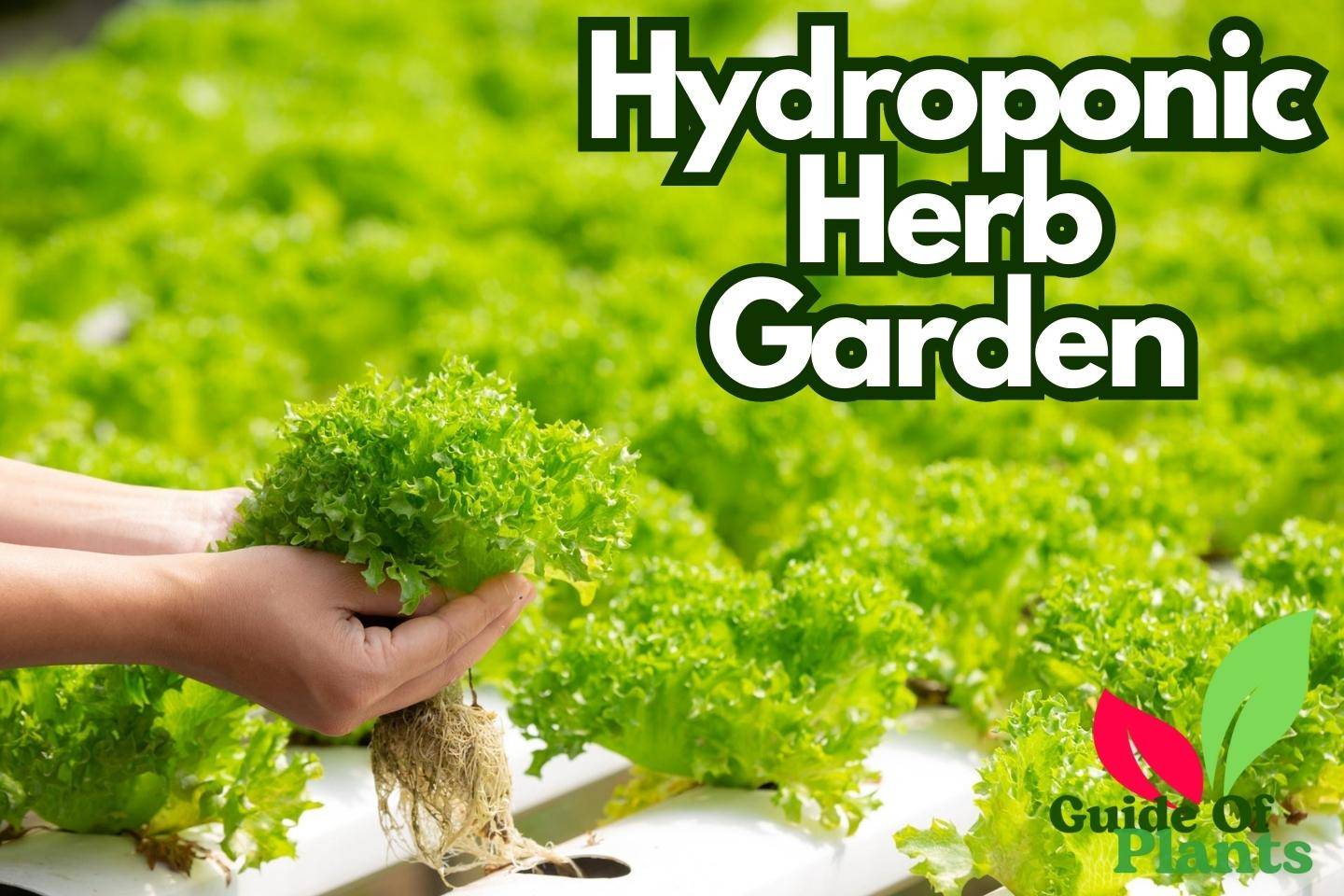


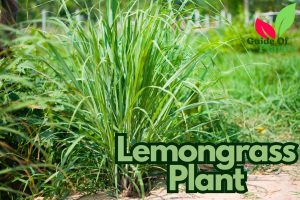
Hello guideofplants.com administrator, Your posts are always well-supported by research and data.
Thanks for your feedback.